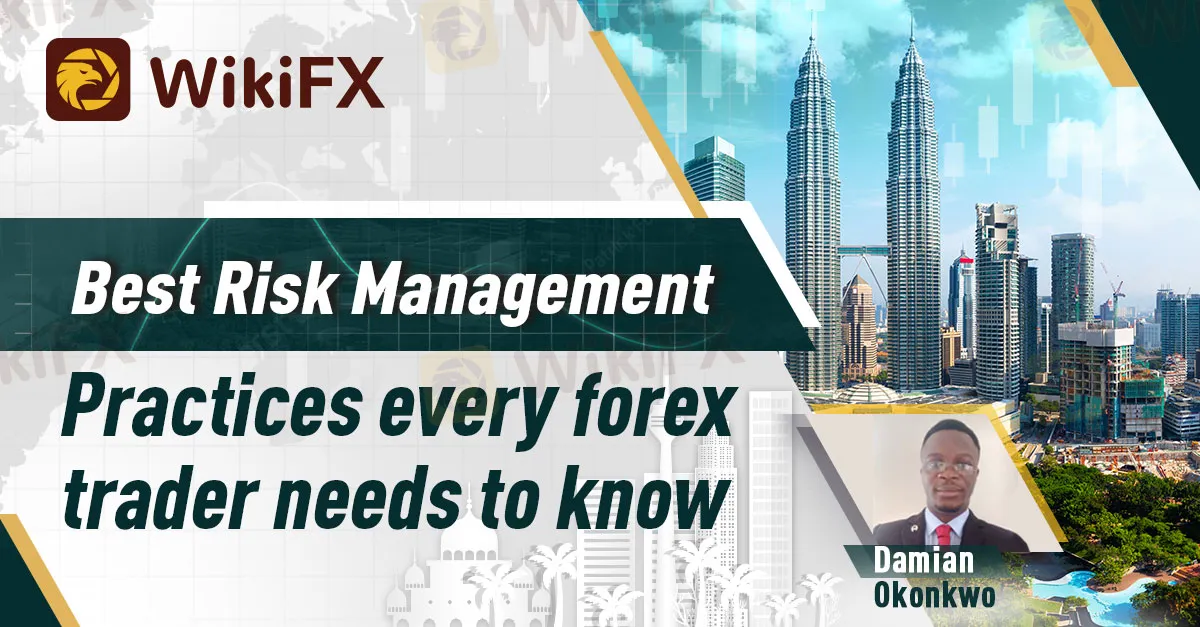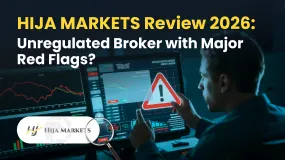Abstract:To navigate this dynamic landscape successfully, every forex trader must prioritize risk management. Implementing effective risk management practices is crucial to safeguard capital, minimize losses, and enhance long-term profitability.

By: Damian Okonkwo

Introduction
Forex trading, also known as foreign exchange trading, offers lucrative opportunities for individuals and institutions to profit from currency fluctuations. However, the forex market is highly volatile and carries inherent risks. To navigate this dynamic landscape successfully, every forex trader must prioritize risk management. Implementing effective risk management practices is crucial to safeguard capital, minimize losses, and enhance long-term profitability. In this article, we will explore the best risk management practices that every forex trader should be well-versed in.
Meaning of Risk Management Practices in Forex Trading
Risk management practices in Forex trading refer to the strategies and techniques used by traders and investors to identify, assess, and mitigate potential risks associated with trading currencies in the foreign exchange (Forex) market. Forex trading involves buying one currency while simultaneously selling another, and it can be highly volatile and unpredictable. Effective risk management is crucial to protect capital and maintain long-term profitability in this market.
Best Risk Management Practices in Forex Trading
a) Risk-Reward Ratio:
The risk-reward ratio is a basic concept in risk management practices. It represents the relationship between the potential profit of a trade (reward) and the potential loss (risk). Traders should aim for a favorable risk-reward ratio to ensure that potential gains outweigh potential losses. A commonly recommended risk-reward ratio is 1:2 or higher, where the trader seeks to gain at least twice the amount they are willing to risk on each trade.
b) Setting Stop-Loss and Take-Profit Levels:
Stop-loss and take-profit orders are indispensable tools for risk management in forex trading. A stop-loss order specifies a price level at which an open position will be automatically closed to limit potential losses. On the other hand, a take-profit order designates a price level at which a trade will be automatically closed to secure profits. Setting these orders before entering a trade helps traders define their risk exposure and protect against adverse market movements.
c) Diversification of Trades: Diversification is an important risk management strategy in forex trading. Here, instead of putting all capital into a single trade, traders choose to spread their risk across multiple positions and currency pairs. By diversifying, traders can reduce the impact of individual trade losses on their overall portfolio and increase the likelihood of capturing profitable opportunities in different market conditions.
d) Position Sizing and Leverage:
Position sizing refers to the allocation of a specific percentage of a trader's capital to each trade. This practice ensures that no single trade can significantly impact the overall portfolio. Novice traders should avoid over-leveraging their positions, as high leverage amplifies both profits and losses. Maintaining a conservative approach to leverage is crucial to prevent devastating losses.
e) Risk Capital Allocation:
Forex traders should only use risk capital, i.e., funds that they can afford to lose, for trading purposes. Risking money that is needed for essential expenses or investments outside of trading can lead to emotional decision-making and excessive risk-taking. Allocating risk capital separately helps maintain a disciplined approach to forex trading.
f) Regular Analysis and Review:
Consistent analysis and review of trading performance are essential for effective risk management. Traders should keep a detailed trading journal, recording each trade's rationale, risk-reward ratio, and outcome. Periodically reviewing this data allows traders to identify patterns, strengths, and weaknesses in their strategies. Learning from past mistakes and successes is crucial for refining risk management practices and improving overall trading performance.
g) Stay Updated on Economic Events and Market News
The forex market is influenced by a wide range of economic events and geopolitical developments. Ignoring these factors can expose traders to unnecessary risk. Staying informed about major economic indicators, central bank announcements, and global news events helps traders anticipate potential market movements and make more informed trading decisions.
h) Emotional Discipline:
Controlling emotions is vital for maintaining effective risk management in forex trading. Fear and greed can lead traders to abandon their risk management strategies and make impulsive decisions. Adopting a disciplined and objective approach to trading, even during periods of high volatility, is crucial to avoid costly mistakes.
Conclusion
Successful forex trading hinges on effective risk management practices. Every trader must prioritize the preservation of capital and minimize losses. By understanding risk-reward ratios, implementing stop-loss and take-profit orders, diversifying trades, and practicing sound position sizing and leverage, traders can enhance their chances of long-term profitability. Additionally, maintaining emotional discipline, staying informed on economic events, and regularly analyzing trading performance contribute to a well-rounded risk management strategy. Adhering to these best practices can significantly improve a trader's ability to navigate the challenges and uncertainties of the forex market.











